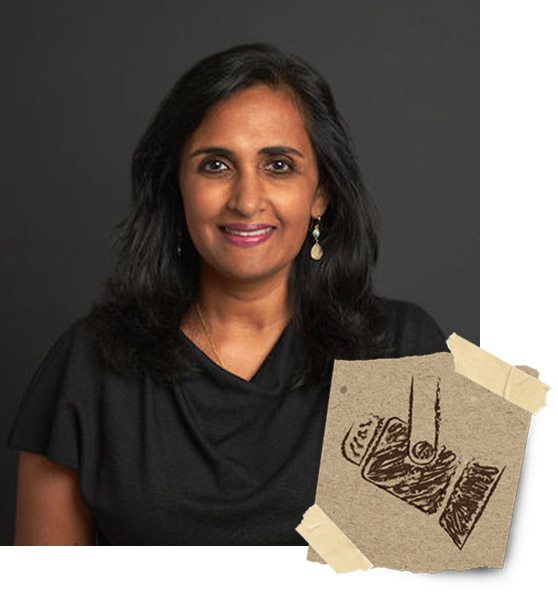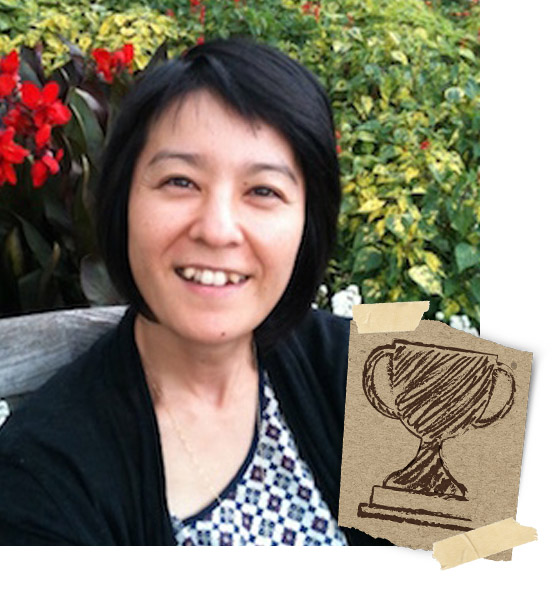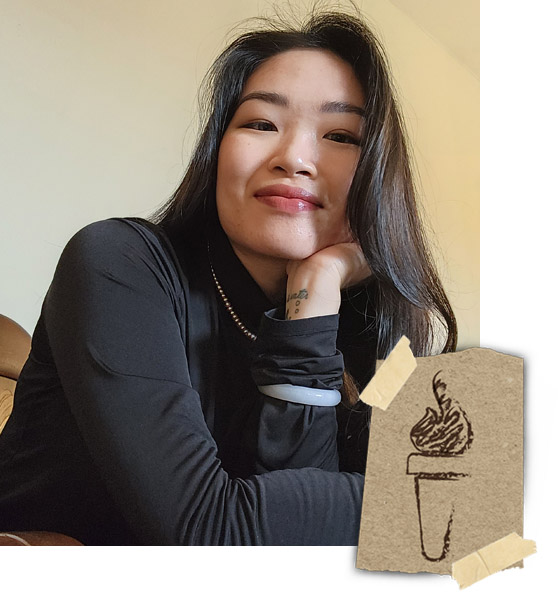Access Spotlight: Dr. Usha Tummala-Narra
May 16, 2025 - Emily Jodway
 Dr. Usha Tummala-Narra is our Access Spotlight for the month of May, as we celebrate APIDA Heritage Month. APIDA stands for Asian Pacific Islander Desi American and is an umbrella term that includes all people of Asian, Asian American and Pacific Islander ancestry. Throughout May, we recognize the contributions and cultural impact these communities have brought to the United States.
Dr. Usha Tummala-Narra is our Access Spotlight for the month of May, as we celebrate APIDA Heritage Month. APIDA stands for Asian Pacific Islander Desi American and is an umbrella term that includes all people of Asian, Asian American and Pacific Islander ancestry. Throughout May, we recognize the contributions and cultural impact these communities have brought to the United States.
Tummala-Narra is a clinical psychologist and a professor in the Counseling, Developmental and Educational Psychology Department at Boston College. She earned her undergraduate degree in Psychology from the University of Michigan before coming to Michigan State and receiving her master’s and PhD in Clinical Psychology.
A daughter of immigrants, Tummala-Narra and her family came to the United States from India when she was seven years old, living in New York and New Jersey before moving to Michigan while Tummala-Narra was in high school. She credits several of her immigrant experiences growing up as an Indian American as influences in her decision to pursue psychology.
“In particular, different types of stress from cultural adjustments to living in the United States, dealing with the loss of what’s familiar to myself and my family- language, traditions, shared culture- influenced my interest in trying to understand the immigrant experience more in depth within the field of psychology,” she said.
As an undergraduate at Michigan, Tummala-Narra gained experience doing research and clinical assistantships, including working in a state psychiatric hospital and a home for homeless and runaway youth, and a crisis hotline. This steered her more toward clinical psychology.
“I was always interested in trying to think about how sociocultural issues and context intersected with the way people experience themselves and the world around them,” she explained.
This, coupled with her own experiences as an immigrant, led her to study the psychology of immigration and how it intersects with other aspects of one’s identity, such as race, gender, social class, and geographical location. She was also interested in the psychology of trauma, both in interpersonal and collective contexts.
“I realized in my own [Indian] community, we rarely talked about those issues, that these topics were highly stigmatized,” she said. “It’s difficult for people to openly talk about their struggles with interpersonal and collective violence, and I felt it was really important to bring more visibility to those experiences.”
One thing Tummala-Narra has found is that stress stemming from trauma can often have intergenerational impacts, affecting both first generation immigrants and their children or extended family. However, many immigrants are brought up to believe that voicing these issues can be a risk to the family reputation and that shameful feelings shouldn’t be brought up. In other cases, second generation children might be hesitant to bring up some of the stresses they are experiencing to their parents, often because of a cultural gap in which parents who grew up outside of the United States cannot relate to the issues they are facing. Other times, they do not wish to put any extra burden of worry on the family, who may already be dealing with stress of their own.
“What often happens is these issues are dealt with in isolation and people are not receiving the right kind of support, nor is there effective communication between family members or within a particular ethnic community,” Tummala-Narra explained. “These tend to be really hard issues and difficult topics for people across generations to openly talk about and grapple with.”
At Michigan State, Tummala-Narra learned from her mentors and faculty experts about the intersection of clinical and community work and how social context impacts individuals differently, as well as how to be an effective listener.
“Learning to listen to people’s suffering with empathy, and just being curious and trying to figure out how I can be someone who can accompany someone in working through that suffering was really critical, as well as how to approach these problems of mental health and trauma as both a researcher and a clinician.”
Being culturally informed as well as showing genuine curiosity in others’ experiences benefits Tummala-Narra as a researcher and practitioner. Getting to know individuals more fully and having that social and personal context helps in addressing their concerns more effectively and helping them along their path to healing.
Becoming a better listener can benefit us as individuals as well. It can challenge our base assumptions and learned stereotypes when we get to know those who come from backgrounds different than our own in greater depth. “Often, the way we listen to others is influenced by our own backgrounds and histories,” said Tummala-Narra.
With communities being impacted by real-life policies and social divisiveness, Tummala-Narra explains, it is more important than ever for both psychologists and all people to better understand the experiences of individuals facing active crises and trauma. Being engaged and helpful, mobilizing the resilience of communities, or even just using basic empathy and checking in with those around you who may be impacted are a few of the ways we can be involved rather than staying in our own personal bubble. In the academic world, understanding the psychology of trauma, immigration and social context can bring more accessibility and awareness to these issues.
“Translating what we know in our research to public understanding of these types of marginalized experiences can be not only profoundly impactful to that person or community, but as a society more broadly, we can see that we have a responsibility to protect people who are being harmed.”
When reflecting upon the significance of APIDA Heritage Month in her own life, Tummala-Narra brought up the ‘pluralistic’ nature of our country and its history, and the impact that individuals from a sprawling array of sociocultural backgrounds have had on our society.
“There are so many different communities that have made the United States what it is today, and it’s really important to be able to recognize the histories that we don’t often see or hear about on a daily basis,” she said. “It’s great to have the opportunity to celebrate that, particularly for Asian Pacific Islander Americans, where we’re coming from communities that are often seen as model minorities or ‘privileged,’ and far less is known about what we are actually doing in our respective fields and about some of the struggles that our communities have faced in the past and continue to face today.”
Honorees’ views are their own and do not necessarily reflect those of the College of Social Science.
Read more:

Access Champion
Faculty/Staff
Dr. Naoko Wake
Dr. Naoko Wake specializes in the histories of identity, activism, and disability in Asian and Asian American communities.

Access Torch
Student
Sylvia Lin
Sylvia Lin is a fourth-year PhD student in Human Development and Family Studies, whose research focuses on ethnic-racial identity development among Asian American youth.

Access Matters
We strive to cultivate an inclusive and welcoming college environment that celebrates a diversity of people, ideas, and perspectives.

